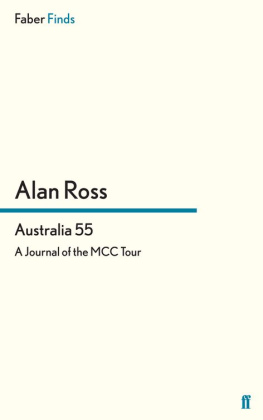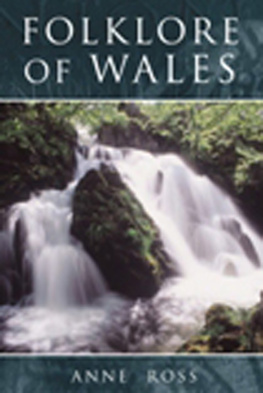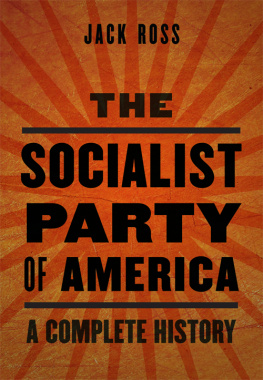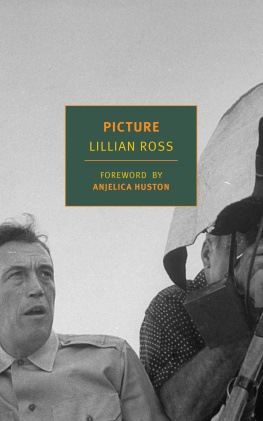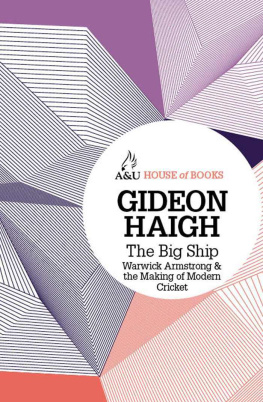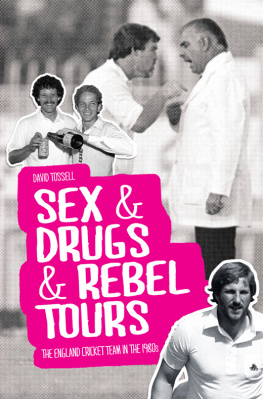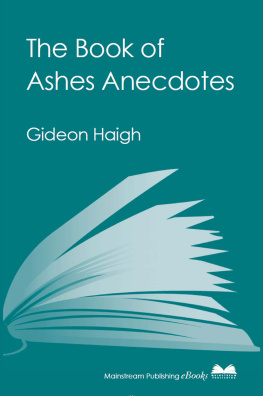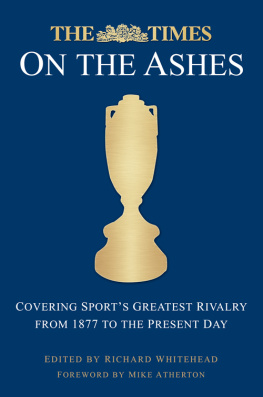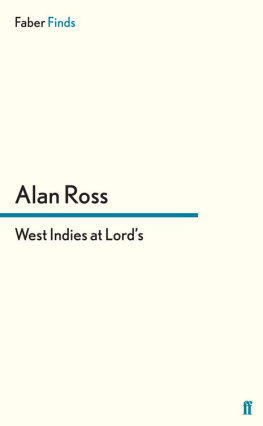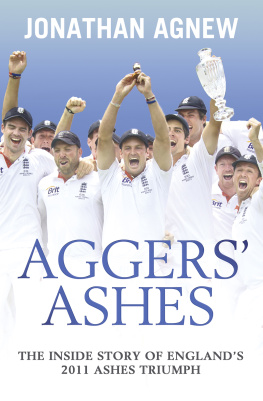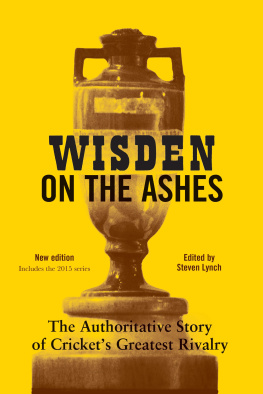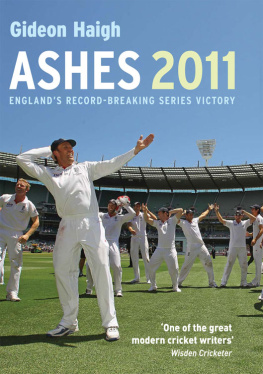In one sense, this book needs no introduction. I have introduced it as I have gone along. In form, it is a journal, though a journal without dates. They are not important. I have written sometimes in the present tense, sometimes in the past, according to circumstance. Living out of suitcases and in hotel bedrooms is not conducive to order. I have written when I have had time, and I have preferred to sacrifice formality to immediacy.
What follows is in part a cricket book, in part an experience of Australia. I should have liked to have written two separate books, because, travelling about the country, I was torn often between duty and pleasure. I should have liked to have visited Alice Springs and the aborigine reserves of the Northern Territories . My obligations required me generally to hug the coastal cities.
But I was lucky, for my duties were the extremely pleasant ones of describing perhaps the most remarkable Test series in living memory. If I had to do without visits to Australian vineyards and the painted caves of the interior, I was rewarded by the bowling of Tyson and Statham, the batting of Cowdrey and May. Incidentally, the wines of Australia, though they lack the bouquet of European wines, were a revelation. With the oysters of Sydney, the tall coconut trees of the north-east, the pale eucalypts of the bush, and the fizzy blue seas of New South Wales, they remain among my pleasantest memories of Australia.
My accounts of the Tests I have left exactly as they were cabled to TheObserver, as whose correspondent I went to Australia, and to the various clients of TheObservers foreign news service for whom I also wrote. They are examples, therefore , of daily journalism, written to a regulated length and with specific ends in view. Where it has seemed to me that extra comment was required, I have speculated afterwards. But, by and large, the discipline of writing on the spot between 1,000 and 1,500 words on a days cricket appears to me beneficial. In retrospect, it is difficult to pick up the clues of a match and to keep clear track of its development. Too many words can obliterate the natural dramatic crises. I was tempted, at the end of the book, to comment on various subsidiary features and conditions of Australian life. I resisted the temptation, happily; for, had I once started, I should be writing still. Australia, like all countries developing at a forced rate, offers plenty of scope for both criticism and prediction. But that was not what I wanted to do in this book, which is, I hope, entirely recreational.
Travelling, one depends greatly on people. Fortunately, Australia is an immensely friendly country. No one, for instance, could have been more agreeable or helpful than those Australian cricket correspondents, with whom, necessarily, I spent a lot of time: Tom Goodman, Ray Robinson, Jack Fingleton, Lindsay Hassett, Bill OReilly, Keith Butler, and many others. The Press Box was a very congenial place, to whose atmosphere absorbed concentration, affectionate interest, irony, cynicism and robust farce variously contributed.
I owe many and profound debts of hospitality, too numerous to acknowledge here. I only hope I have done so privately. What must be acknowledged, however, is my indebtedness to the Editor of TheObserver both for making my journey possible and for allowing me to use material that was originally written for that newspaper. I should like as well to thank the Editor of the SydneyMorningHerald for providing me with material from their files on the curious origins of surfing.
Last, but not least, I am grateful to Mr John Woodcock for permission to use seven of his photographs.
A. R.
IndianOcean,April, 1955
The sky is sealed up all round as we nose our way through a tank built out of mist. An hour or two ago the sun, for the first time for a fortnight, sheltered under thin cloud, which then thickened as though being pumped up with smoke. The sea began to spill into the sky, the waves curdled, and now for twenty minutes a slow heavy rain has sweetened the air, running off the decks and gathering in the scuppers.
It has taken the rain to drive me into my cabin and to keep me there. I meant to begin this journal somewhere around Gibraltar, but the sun liquefies the conscience as it does the body, and we are past Colombo. Each day one postpones the fatal first entry, the sentence that will condition the style and tone and manner of all those that follow. Cutting cleanly through the middle seas of the world in this stately hotel, life has seemed to have no future, no past. Once the painful ties have been broken, the separation achieved, only the blueness remains real. An hour out of Gibraltar the blue began, deepening steadily as we sailed eastward, changing from the classical blue of the Italian and Greek seas to the bronze, heat-beaten blue of the Indian Ocean.
It grows impossible to pick up a pen, to open a book. Not only because the heat pours off one, leaving dog-marks of wet at the foot of chairs, but because the moving frieze of shipboard life exerts a fascination stronger than anything between the pages of a book. People move round ones gaze like fish in an aquarium. Some cling together in schools, some lie open to the sun all day like starfish, some seek out the unwary and grip them like an octopus. Each week the victims smile grows more sickly, his self-will dwindles; in the end, so devoid of resources does he become, it is he who seeks out his noisy, unwanted familiar, his hateful gaoler.
Yet this buff and white 29,000-ton Orsova, commissioned this year and Australia-bound for only the second time, is big enough for numerous completely different kinds of life to be going on with virtually no overlap at all. The passenger-fish may come nosing round their glass walls with such monotonous regularity that one gradually thinks to have seen them all, only for one to find, on an unsuspecting excursion, new unknown varietiesself-absorbed beauties docile as pilot fish, forbidding lampreys on the look-out for slights.
After a bit, one recognizes the quoit-throwers, the methodical padders of the deck, the splayed sun-women and men round the swimming pool, the bar-proppers with stories to get rid of, the smooth prowlers whose amourpropre does not allow them to be seen girl-less, the grey and volcanic bridge players, whose swelling behinds in flowered chintzes bulge like exotic fruits against the backs of the library chairs. Shipboard life has a romantic antique ritual of its own which pleases, interests and bores in turn. At moments, especially during the long hours between lunch and dinner, it seems endless and futile; then one gets a sort of second wind, an acquaintanceship blossoms and one secretly dreads the end of idleness and irresponsibility. There is, of course, consistently too much drinking and eating, and too little sleep. But there is always the generosity of the sun, the liberal blue of the sea, the magic cocktail of the dusk.
The writing of this book sets many problems, for I want to do several things at the same time and I am not at all sure how happily they will settle down together. Nor how much that may be of interest to one reader will be to another. For that reason I think the journal form will be best; everything can go in, cricket, Australia, architecture, people, places, and ideas, and they need have no more formal relationship than the idiosyncrasies of my moods. Specifically, I shall be writing about the M.C.C. tour of Australia during the next six months, about the cricket they play, the kind of life they and I lead. But I am as much interested in Australia as I am in cricket (it would indeed be a dull fellow who was not) and I intend to digress at least as often as I stick to the main theme. It may not work out that way, my interest in one may dwindle at the expense of the other, but that is my intention this October evening as we slant south-east on the tail of a trade wind. Yet already, reading through what I have written, I am conscious of a lack of balance. I have begun in mid-ocean, taking for granted the ship, its passengers and its route, and have all but omitted the reason why I am travelling at all. Stories, even of such an informal nature as this, should have a beginning, a middle and an end, and I will therefore, before I am too hopelessly behind - hand , try and set out the facts in some kind of order. If we are half-way across Australia by the time I have finished the preliminaries I shall have only myself to blame. A writers whipping-boy is always himself. It is better that way.

